AI in Healthcare: How It’s Revolutionizing the Industry
Artificial Intelligence (AI) is reshaping the healthcare industry, transforming patient care, medical research, and operational efficiency. From predictive analytics and robotic surgeries to disease diagnosis and personalized medicine, AI’s influence is wide-reaching and immensely impactful. By leveraging AI technologies, healthcare providers are delivering more accurate, timely, and effective treatments, leading to better patient outcomes and improved healthcare systems.
The Rise of AI in Healthcare
AI has seen rapid adoption in healthcare, driven by advancements in machine learning, data analytics, and natural language processing. With the ability to process vast amounts of medical data, AI is enabling healthcare professionals to make informed decisions faster and more accurately. Its applications are diverse, ranging from clinical diagnosis to drug discovery, revolutionizing every aspect of healthcare.
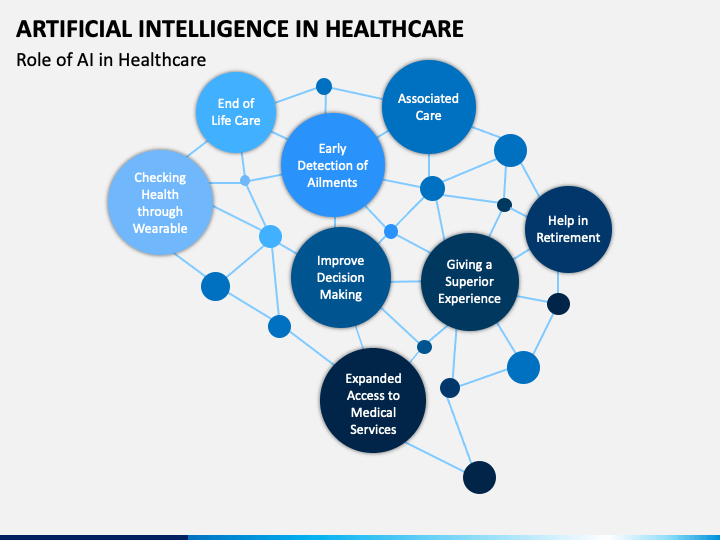
Real-World Example: Google DeepMind’s Impact on Healthcare
One of the most compelling examples of AI’s impact on healthcare is Google DeepMind. DeepMind, a UK-based AI company owned by Alphabet, has achieved groundbreaking success in medical research and patient care. Its AI technologies have been instrumental in advancing medical science, with several notable achievements.
1. Detecting Eye Diseases with AI
In collaboration with Moorfields Eye Hospital in London, DeepMind developed an AI system capable of detecting over 50 eye diseases with the same accuracy as expert ophthalmologists. The AI analyzes complex eye scans to identify signs of conditions like diabetic retinopathy and macular degeneration. This technology allows for faster and more accurate diagnoses, helping prevent vision loss in patients.
Impact: Early detection of eye diseases is crucial, and DeepMind’s AI model provides rapid, reliable results, enabling timely treatment and reducing the risk of blindness. This AI system is currently being tested and integrated into clinical practice, where it could revolutionize ophthalmology.
2. Protein Folding Breakthrough with AlphaFold
Another revolutionary achievement from DeepMind is AlphaFold, an AI system that solved the 50-year-old problem of protein folding. Understanding how proteins fold is critical for medical research, as it can unlock new insights into disease mechanisms and aid in drug discovery. AlphaFold’s accuracy in predicting protein structures has been hailed as one of the most significant scientific advancements of our time.
Impact: AlphaFold is accelerating research in fields like genetics, biochemistry, and pharmacology. Pharmaceutical companies and researchers are now using AlphaFold’s data to develop new drugs and understand diseases like Alzheimer’s and cancer at the molecular level. This breakthrough has the potential to speed up drug development and lead to innovative treatments.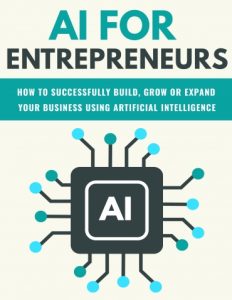
How AI is Revolutionizing Healthcare
1. Disease Diagnosis and Early Detection
AI algorithms are being used to analyze medical images, detect patterns, and diagnose diseases at an early stage. In radiology, AI systems can identify abnormalities in X-rays, MRIs, and CT scans with remarkable accuracy. For example, AI models developed by IBM Watson and Enlitic can assist radiologists in detecting cancer, fractures, and neurological disorders.
Impact: Early diagnosis is crucial for effective treatment. By identifying diseases sooner, AI helps improve survival rates and reduces the cost and complexity of treatments. AI-powered tools are being adopted in hospitals worldwide, enhancing diagnostic accuracy and saving lives.
2. Predictive Analytics for Patient Care
AI-driven predictive analytics uses historical patient data to forecast health outcomes, such as the likelihood of readmission, disease progression, or treatment success. Hospitals use these insights to create personalized care plans, allocate resources efficiently, and reduce preventable hospitalizations.
Real-World Example: Johns Hopkins Hospital uses an AI-powered early warning system called the “Targeted Real-time Early Warning System” (TREWS) to predict sepsis risk in patients. The system analyzes vital signs and lab results to alert clinicians of potential sepsis cases, enabling early intervention and reducing mortality rates.
Impact: Predictive analytics can dramatically improve patient care, reduce hospital costs, and enhance the efficiency of healthcare systems. It allows for proactive healthcare, focusing on prevention rather than treatment.
3. Robotic-Assisted Surgeries
Robotic surgery systems, powered by AI, are making complex surgical procedures more precise and less invasive. The da Vinci Surgical System, one of the most well-known robotic platforms, uses AI to assist surgeons in performing minimally invasive surgeries. AI ensures greater precision, reducing the risk of complications and speeding up recovery times.
Impact: AI in robotic surgery has revolutionized fields like urology, gynecology, and orthopedics. Patients experience shorter hospital stays, reduced pain, and quicker recovery, while surgeons benefit from enhanced control and visualization during procedures.
4. Personalized Medicine
AI is driving the shift toward personalized medicine, where treatments are tailored to individual patients based on genetic information, lifestyle, and environmental factors. Machine learning algorithms analyze patient data to predict how individuals will respond to specific treatments, enabling more effective and customized care.
Real-World Example: IBM Watson Health uses AI to assist oncologists in creating personalized cancer treatment plans. By analyzing medical literature, clinical data, and genetic information, Watson provides recommendations for the most effective therapies for each patient.
Impact: Personalized medicine improves treatment outcomes and minimizes side effects. It empowers healthcare providers to make data-driven decisions, optimizing patient care and paving the way for precision healthcare.
5. Drug Discovery and Development
AI is revolutionizing drug discovery by analyzing massive datasets to identify potential drug candidates faster and more cost-effectively. Traditional drug development is time-consuming and expensive, often taking over a decade and billions of dollars to bring a drug to market. AI accelerates this process by predicting the efficacy of drug compounds and identifying targets for therapeutic intervention.
Real-World Example: BenevolentAI, a London-based AI company, uses machine learning to analyze scientific data and discover new drugs. During the COVID-19 pandemic, the company identified baricitinib as a potential treatment for severe COVID-19 cases, and the drug was later approved for emergency use.
Impact: AI-driven drug discovery is reducing the time and cost associated with developing new medications. It’s opening up possibilities for treatments that were previously too complex or expensive to explore, revolutionizing how we combat diseases.
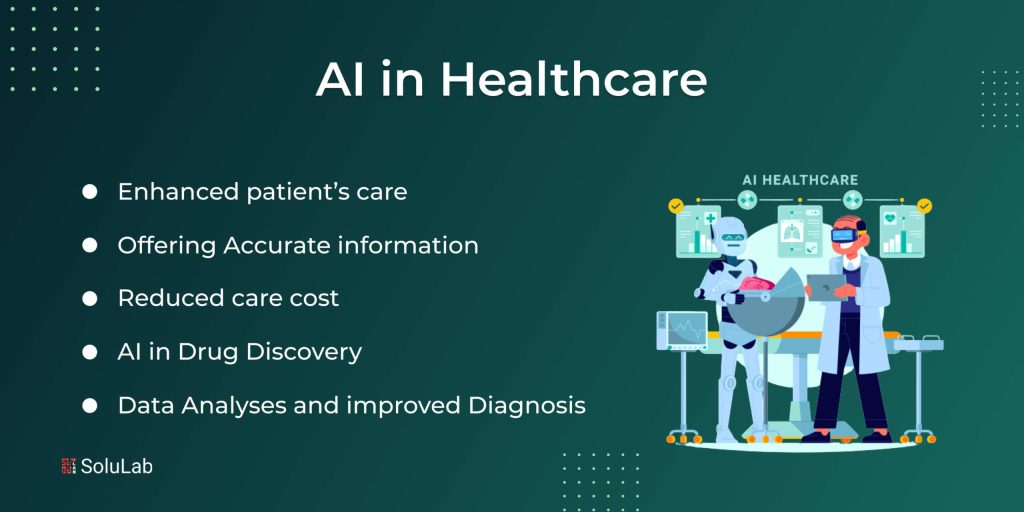
Achievements of AI in Healthcare
AI’s achievements in healthcare are nothing short of extraordinary. Here are some of the most significant milestones:
- Cancer Detection: AI models have achieved accuracy rates comparable to, or even exceeding, those of human radiologists in detecting breast cancer and lung cancer in medical images.
- Neuroscience Advancements: AI has been used to analyze brain scans, aiding in the early diagnosis of neurological disorders like Alzheimer’s and Parkinson’s.
- Patient Monitoring: Wearable devices equipped with AI monitor vital signs in real-time, alerting healthcare professionals of any irregularities. These tools are crucial for managing chronic conditions like diabetes and heart disease.
- Mental Health Support: AI-powered chatbots like Woebot use natural language processing to provide mental health support and therapy to individuals, making mental health care more accessible.
Challenges Facing AI in Healthcare
Despite its incredible potential, AI in healthcare still faces several challenges:
1. Data Privacy and Security
AI systems require vast amounts of data to function effectively. However, collecting and storing patient data raises concerns about privacy and security. Healthcare providers must comply with regulations like HIPAA (in the US) and GDPR (in Europe) to protect sensitive information.
Challenge: Balancing the need for data to train AI models with the responsibility to protect patient privacy is a complex issue that must be carefully managed.
2. Bias and Fairness
AI algorithms can inherit biases from the data they are trained on. If the data used to train an AI system is not diverse or representative, it can lead to biased outcomes, affecting patient care and treatment accuracy.
Challenge: Ensuring fairness and eliminating biases in AI models is critical to prevent disparities in healthcare outcomes.
3. Regulatory and Ethical Concerns
The use of AI in healthcare raises ethical questions, such as who is responsible if an AI system makes a mistake. Regulatory frameworks for AI in medicine are still evolving, and there is a need for clear guidelines to ensure patient safety and trust.
Challenge: Establishing regulatory standards that keep pace with rapid technological advancements is a significant hurdle.
4. Integration with Healthcare Systems
Integrating AI technology into existing healthcare systems can be complex and costly. Many healthcare institutions still rely on outdated infrastructure, making it difficult to adopt advanced AI solutions seamlessly.
Challenge: Overcoming integration barriers and ensuring interoperability between AI systems and traditional healthcare infrastructure is essential for widespread adoption.
The Future of AI in Healthcare
The future of AI in healthcare is incredibly promising. With continuous advancements in machine learning and data analytics, AI will likely play an even more integral role in patient care, research, and healthcare management. As technology evolves, AI could enable even greater achievements, such as curing genetic diseases, predicting disease outbreaks, and creating fully autonomous surgical robots.
AI’s potential to transform healthcare is limitless, but it must be implemented thoughtfully and ethically to maximize its benefits. The focus should always be on improving patient outcomes and making healthcare more accessible, efficient, and personalized.
Conclusion: A New Era of Healthcare
AI is not just a tool but a catalyst for a new era in healthcare. From improving diagnostic accuracy and personalizing treatments to accelerating drug discovery and making healthcare more efficient, AI has the power to revolutionize medicine. However, it’s essential to address the challenges associated with AI to ensure that it’s used responsibly and equitably.
The journey of AI in healthcare has only just begun, and its future looks brighter than ever. As we continue to innovate and explore the potential of AI, the possibilities for saving lives and improving health outcomes are truly endless.
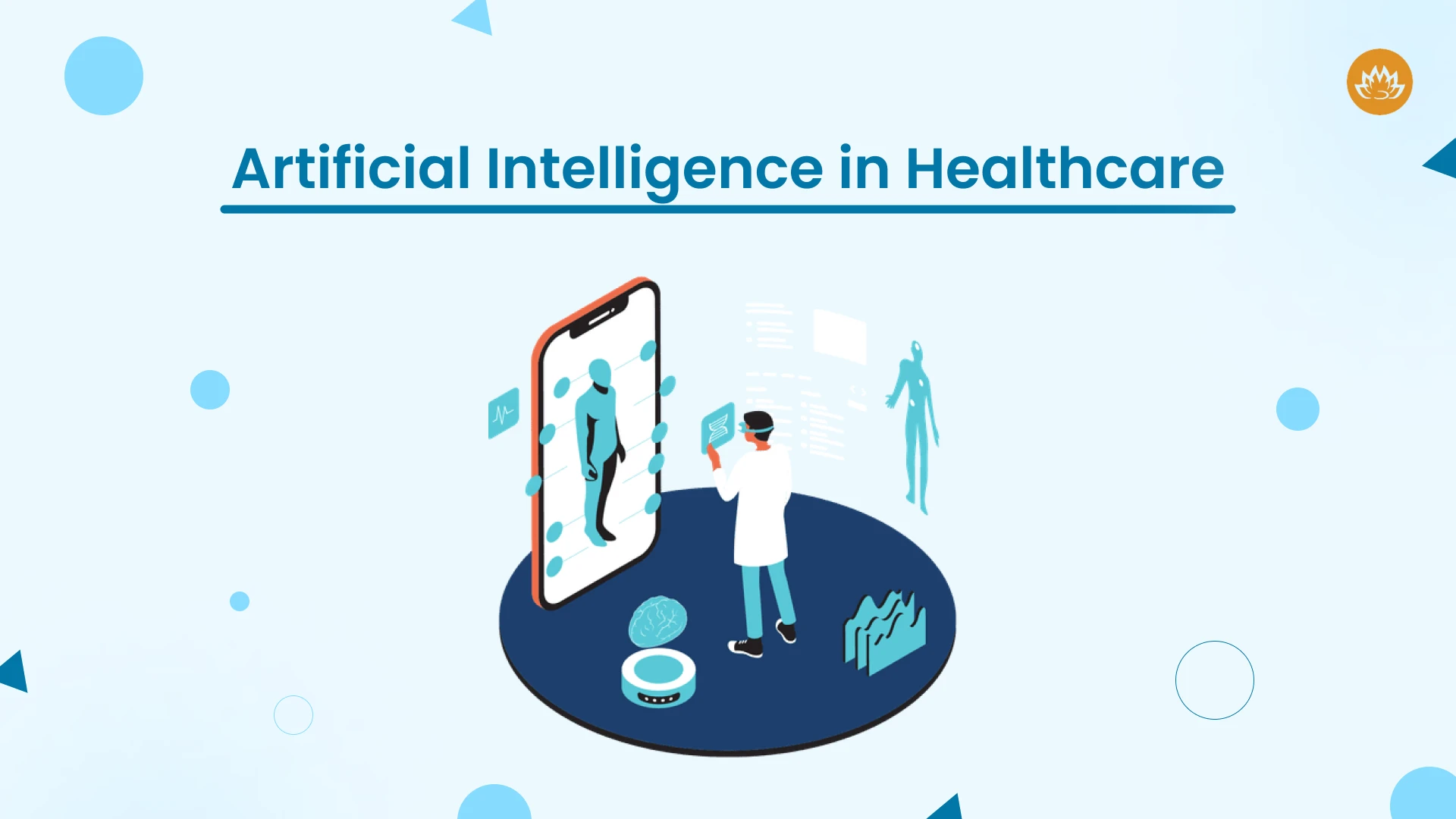

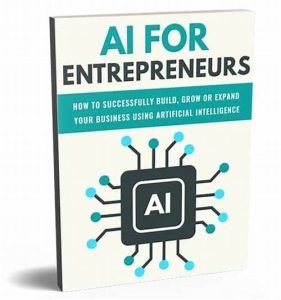


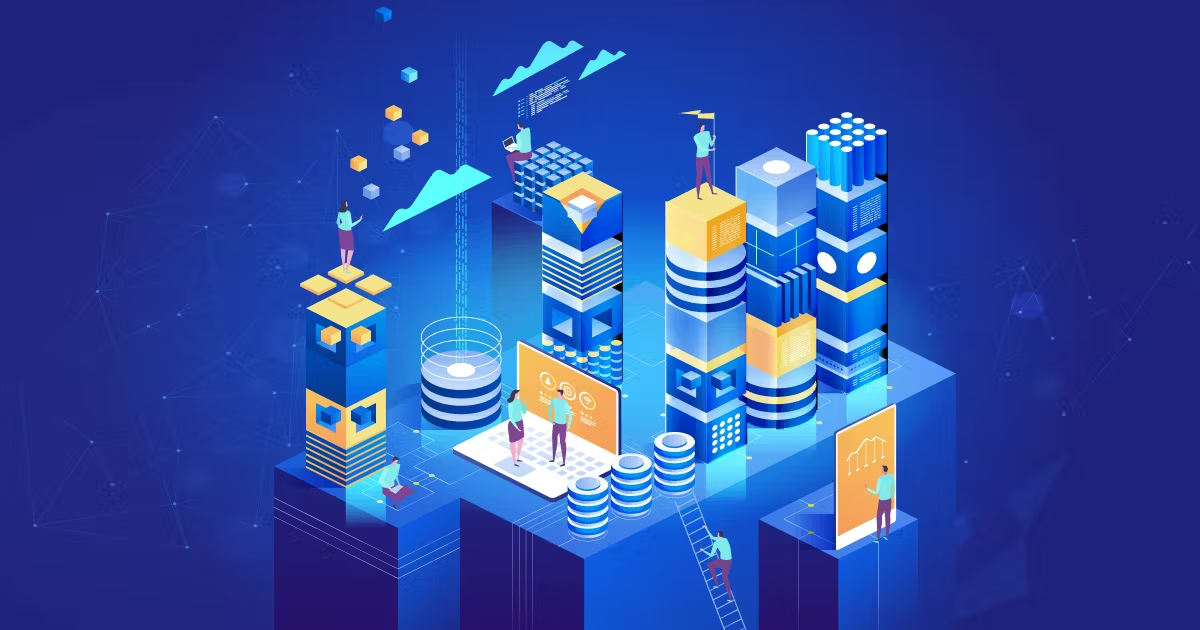
Leave a Reply to Kathy464 Cancel reply